 Last week I focused on the role stake officers have in ministering effectively to LDS singles. Today I’m turning my attention to the wards. Stakes often do little more than give the wards stewardship over ministering to singles. As we discussed last week, stakes which don’t provide accountability with that stewardship will often leave the needs of many singles unmet. It’s easy to marginalize singles. After all, ward leaders are very busy. Balancing commitments to family, work, and their callings is a constant battle for time and other resources. When it comes to singles, many local leaders find it easier to let a group that doesn’t really fit into the family-centered culture of the Church anyway fend for themselves. But given the choice to sink or swim, many LDS singles will sink simply because they lack the support they need. That’s not the plan for anyone. The plan is for adults to live with the support offered by marriage. Singles by definition don’t have that structure, nor can they completely substitute for that by themselves. Small but meaningful acts  The thought of supporting singles while also supporting their other responsibilities may overwhelm some ward leaders. But just as we saw with stake leaders, many ward leaders can minister effectively to singles in the performance of their normal duties. We should base every ministration to singles on the three main principles I discussed last week. Beyond these, ward leaders need to show a little initiative. The bishop, the elders’ quorum president, high priest group leader, and Relief Society president should interview each single adult under their stewardship regularly (bishops at least quarterly, other ward leaders at least monthly). Leaders can delegate these interviews to counselors, but taking the initiative to invite singles to talk for 5-10 minutes can make a world of difference. It shows singles they aren’t forgotten but noticed. And being noticed brings with it the hope of being understood and loved. In interviews, you can talk about the challenges of singles life, but it’s more important to focus on goals and dreams they themselves have made, looking for ways you can help realize them. You can also provide them with some gentle accountability. I would love for my leaders to ask me about my dating efforts and hold me accountable for working towards making essential sacred covenants I have not yet made. Like many singles, I don’t have that significant other to help keep me on course. The real heavy lifting  Those small but regular conversations between LDS singles and their local leaders can change lives. They can also inform leaders in ward council, welfare, and other meetings where ward resources are marshaled. Beyond that, home and visiting teachers do the real heavy lifting. Please understand we’re not talking here about the typical once-a-month, at-the-end-of-the-month get-together to read to us something we can very well read on our own so someone else can check an item off a to-do list and satiate ego at having done one’s duty. We’re talking here about a real relationship with a real friend, someone who’ll be there and walk with us singles when the times get tough. And very often walking with someone means nothing more than doing the small but right things at the right times. Elder Holland displayed that understanding of real home teaching. Was it just coincidence he started his last Conference address with a less effective example that involved a perfunctory visit to the home of a single sister? I don’t think so. Singles greatly need the support that home and visiting teachers are best positioned to supply. Of course, this model means that home teachers must home teach and visiting teachers must visit teach, which often isn’t the case. Local leaders should work diligently to help home and visiting teachers of singles to be the home teachers or visiting teachers singles need them to be. Working together  There’s many more details than any brief monologue can provide. But I’ve provided the general gist of how effective ministering to singles works. Local leaders can always seek revelation, which includes the guidance of the Spirit, to fill in the blanks in their own circumstances. Throughout this process, we singles should exercise patience with our leaders, especially if they are sincerely trying. That means understanding and forgiving shortcomings. That also means accepting whatever time leaders take to get it right. Stake and ward leaders can learn how to minister to singles more effectively. Singles can feel more accepted and supported when they do. When we all understand our roles and work to help each other fulfill those roles as best we can, life becomes better for everyone. And that will bring more joy in our journey.
0 Comments
 As many of you know, I have only one goal for 2017 — live my best life. But how do I live my best life when I feel my ward is just a place to go to church and storehouse my membership record? That got me thinking about interactions I’ve had with local leaders. Not finding any support from my ward, I reached out to my stake president. We exchanged emails over a few months mostly due to pauses in between messages. What I found especially frustrating was my failure to feel understood, an experience shared by many LDS singles. I wished my leaders would just stop and listen to me. Then I realized I should take my own medicine. They are, after all, babes in sacrament meeting. As I stopped and listened to their words, I began to perceive they have no clue how to minister effectively to LDS singles. So I dedicated myself to helping them learn. My initial efforts producing no results, I’m taking a different approach — one that will help LDS singles everywhere and not just me. And it starts with a series of programs devoted to this very topic, beginning with this monologue about the role of stake leaders in ministering to singles. Back to basics  The idea that stakes can’t effectively minister to singles is a convenient lie. It’s convenient because it allows busy leaders to rationalize inaction as the best response for meeting the needs of singles. And it’s a lie because stake leaders can do much to minister effectively to singles. Admittedly, we’re not talking here about stake officers interacting with every single adult in the stake. That’s impractical. But we are talking about actions stake leaders can take while in the performance of their normal duties. Three principles provide the foundation for all my suggestions for effective ministering to LDS singles.
Understanding stake roles  Often stakes simply give wards stewardship over singles. And what typically happens is nothing. Expecting a job to get done without providing accountability is nothing more than wishful thinking. This is where stake presidents can help. In their regular interviews with bishops, they can ask two questions: First, how are the singles in your ward? Second, what are you and the ward council doing to help meet their needs? The few minutes these questions take are all that’s needed to provide accountability. The key is to ask these same questions interview after interview after interview. The first time or two bishops encounter these questions, they’ll likely not have many if any positive answers. By the third time, they’ll come to expect these questions and so take action to have better answers for each next interview. Each repetition of the questions fosters a continued sense of accountability. High council members can support this accountability by promoting attention to singles issues when speaking in individual wards. And instead of just planning activities, stake singles committee members can focus on creating support networks for singles. Coming together 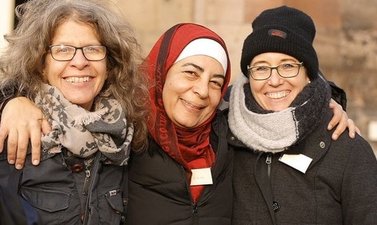 Much of the heavy lifting will come from the wards. That said, stakes can do more than they typically do to minister effectively to LDS singles. If your stake leaders believe there’s nothing they can or should do for singles in your stake, please help educate them by pointing them here. LDS singles will never have the support they need if everyone does nothing, and that everyone includes us singles. I am convinced the majority of our leaders want to help but simply don’t know what to do. Point them in a direction that will help them learn. Point them here. Only by taking action do we see any results. Let’s all partner with each other to make life better for LDS singles everywhere. When we do, we’ll all have more joy in our journey.
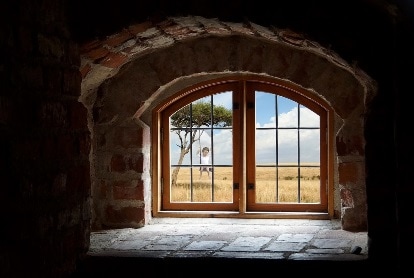 This year I made living my best life my only goal for the year. When you think about it, that could easily break down into many smaller goals. I haven’t gone too far down that rabbit hole, though, because I think part of living your best life is just keeping things simple. I think another part of living your best life is making sure you put first things first. How can you live your best life if you aren’t giving attention to what matters most? My thoughts lately have dwelt on this particular aspect, mostly because I’ve been working so much. I understand my reasons, but I also understand those reasons don’t justify the lack of attention to things that matter most. One of my priorities should be family history. I know I need to do more to hasten this work, but that won’t happen if I don’t dedicate the time for it and then stick to that plan. I have the plan, but it’s the sticking part that gives me trouble. Fortunately, repentance is part of our Heavenly Father’s plan for us. And this week provides the perfect opportunity to get on the right track. RootsTech is here again. Make the time  Every February the world’s largest family history conference convenes in Salt Lake. I spoke about RootsTech last year. Actually, I think I talked about RootsTech the year before that as well. I’ve looked forward to RootsTech in years past for the time with my father. This year neither one of us are in Salt Lake, but we can still spend time together around RootsTech. Selected sessions at the conference are streamed live over the Internet. Just go to the RootsTech home page to watch those sessions live. There’s also a live streaming schedule if you want to know in advance what sessions will be broadcast. And if you miss a session you want to see, don’t worry. Recordings of the sessions will be available for a limited time afterwards on the RootsTech website. I appreciate that because one of the live streaming sessions that interests me will start while I’m teaching class. I did make arrangements to cover my other teaching responsibilities so I could have the time to spend with my dad. And I’ve been looking forward to it. I do want to spend time with my dad, yes. I do want to get more involved in family history work, yes. I do want to put more first things first, yes. But honestly, there’s one reason why I’ve been looking forward to this that I feel more than spending time with my father. I’m not exactly proud to admit it, but it’s true all the same. I need a break from the busyness of my work to get back on track with my priorities and restore a sense of balance to my life. Make the opportunity  I didn’t wait for the opportunity to be handed to me. I believe in owning my life, so I made my own opportunity. RootsTech happening at the same time just makes it more convenient. The time I spend with my father will be a highlight for me. But so will Family Discovery Day, a special part of RootsTech which the Church organizes to engage more Latter-day Saints in family history work. I remember the last time I attended RootsTech in Salt Lake. The surge of attendance because of Family Discovery Day was huge. I didn’t attend any of the events connected with it because there were other sessions that piqued my interest more. But the huge turnout for Family Discovery Day did get me curious. I’m not in Salt Lake this year. But I still plan on participating in Family Discovery Day. And this year the event will begin with a very special treat. President Russell M. Nelson and his wife Wendy will be the keynote speakers. Just like RootsTech, Family Discovery Day will be streamed live across the Internet. You can find it on the Church website starting Saturday at 1 PM MST. And sessions will be recorded and posted for later access if you can’t make it. Make the priority  I’ve been looking forward to this week. I need to regain my balance, and I know I’ll enjoy the time with my father. But I also know I need to be more involved in family history work than I have been. RootsTech and Family Discovery Day provide excellent pathways for repentance. Your best life includes balanced attention to priorities and everyday responsibilities. Partner with the Lord to decide what your priorities should be. Then clear the space you need to put those priorities first and bring balance to your life. When you do, you’ll have more joy in your journey.
I remembered what he said, but I also remembered what I felt. I felt that perhaps President Monson will not be with us much longer since he didn’t look that great. I felt the need to align my priorities more with foundational truths. I felt the need to try a little harder to be a little better. As much as those feelings still apply today, reading President Monson’s words four months later brought to me a new feeling. I feel I’ve missed an important aspect of living one’s best life. It’s part of the plan  Recently I’ve been addressing the theme of living your best life. It’s my only goal for 2017. I’ve recognized that living one’s best life is more about the journey than the destination. It’s about the constant struggle to improve, never settling for status quo — especially when that status quo is mediocrity. I’ve even acknowledged the role the Lord plays in living your best life by continuing to embrace a longstanding theme of Joy in the Journey Radio. It makes perfect sense we can’t have our best life if we don’t partner with the Lord. But President Monson’s words helped me realize I must do more than partner with the Lord and constantly seek to improve if I am to live my best life. President Monson began his remarks by sharing an experience while on assignment at the 1964 World’s Fair in New York City. The Mormon Pavilion there at the fair showed the now classic Church film Man’s Search for Happiness. President Monson described his impressions of watching a group of attendees — and in particular a gentleman in his mid-30s — respond to the film. He then continued to speak about our Heavenly Father’s plan.
You can’t live your best life unless you live the truth you have.
How often I’ve begun my prayers by expressing gratitude for blessings (“Hallowed be thy name”) before rushing to detail all the help I needed in my life (“Give us this day our daily bread”). That pattern doesn’t match the Lord’s. It skips over an important element: “Thy kingdom come. Thy will be done.” As I recognized the pattern of prayer in the Savior’s teaching, I understood I had never prayed with the intent of putting the Lord first. The Lord had always been important, but I had never begun my prayer with “Thy kingdom come.” I had always jumped to “Give us this day our daily bread.” I determined to align the pattern of my prayers more fully with the Lord’s teachings. As I put the Lord first by discussing my participation in His work before bringing to Him anything about His participation in my life, I began to feel closer to Him. I began to feel more like He really was a partner for my life. Living the truth I had brought me closer to my best life. Christ is the key  Partnering with the Lord to live our best life is our Heavenly Father’s plan for us in mortality. Christ was never intended to be with us only in those pivotal moments of our journey home. Rather the plan is for Him to be with us for each and every step of that journey. You can’t have your best life without Christ. That’s because, in order to live your best life, you need to live the truth you have. And it’s by partnering with the Lord for His work as well as for your life that you fully live the truth you have about our Heavenly Father’s plan for all His children. President Monson declared,
Living the truth — not just having it — and partnering with the Lord for His work — not just for your life — is what the Lord wants for all of us. When you live the truth you have, you can better live your best life. And that will bring you more joy in your journey.
|
Author
Howdy! I'm Lance, host of Joy in the Journey Radio. I've been blogging about LDS singles life since 2012, and since 2018 I've been producing a weekly Internet radio show and podcast to help LDS singles have more joy in their journey and bring all Latter-day Saints together. Let's engage a conversation that will increase the faith of LDS singles and bring singles and marrieds together in a true unity of the faith.
Comment
Joy in the Journey Radio encourages the free discussion of ideas but reserves the right to remove and/or block comments which do not conform to LDS standards.
Donate
Joy in the Journey Radio offers many free resources to help LDS singles everywhere, but it certainly isn't free! Help Joy in the Journey Radio in its mission to improve the lives of LDS singles by donating today.
Posts by Month
December 2022
Categories
All
|
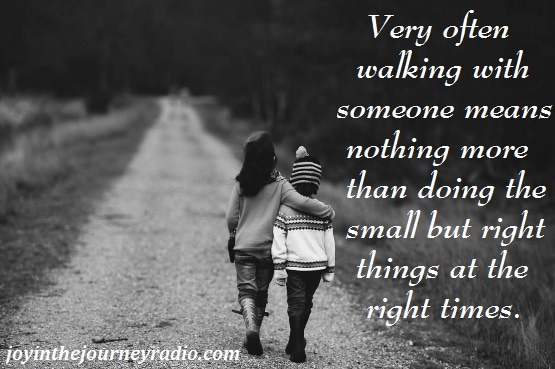
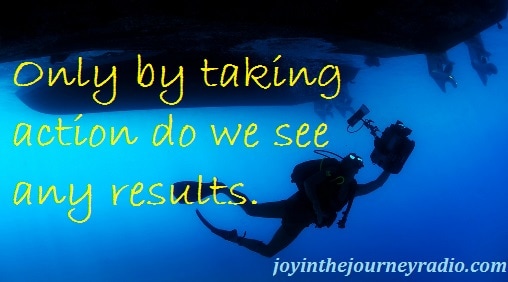



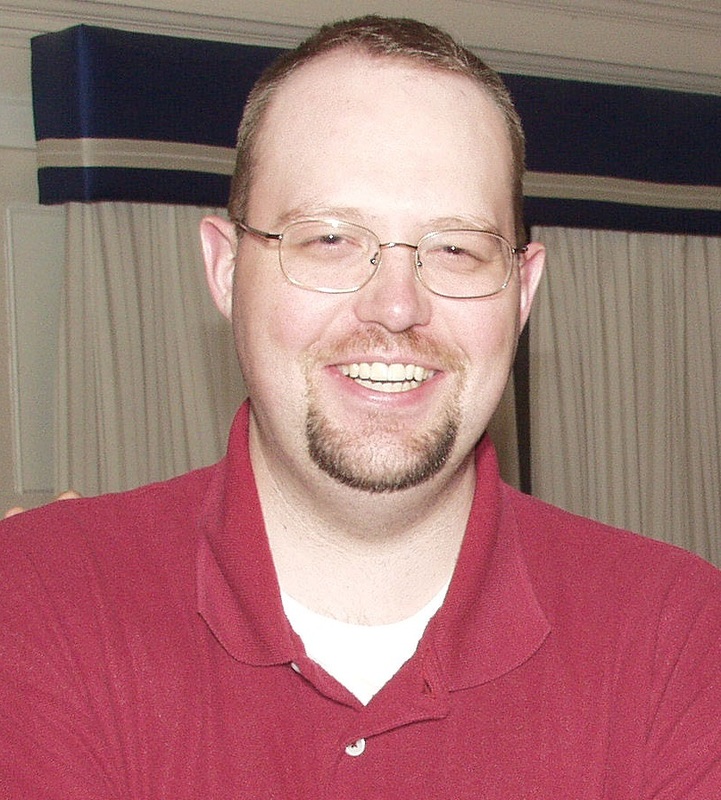
 RSS Feed
RSS Feed